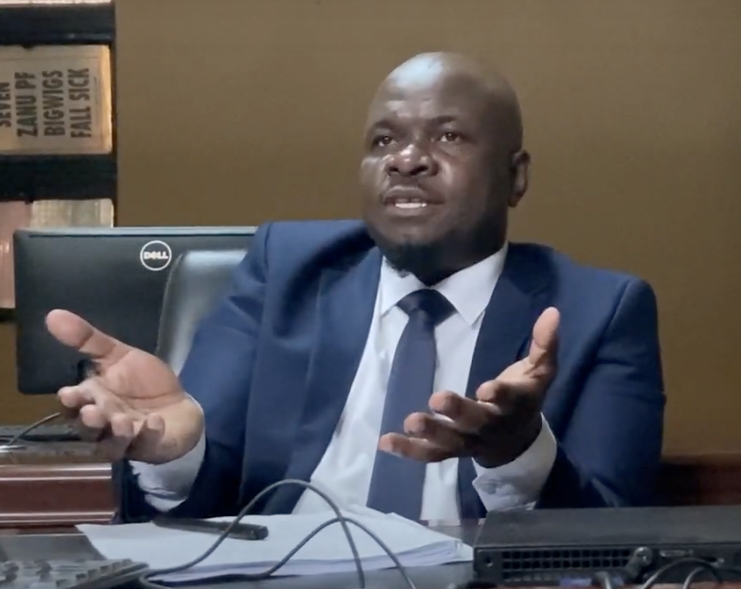The Nationalists Alliance Party (NAP) has called on other political parties to boycott the upcoming elections in protest against the hefty nomination fees for election candidates.
NAP leader, Divine Mhambi-Hove who launched a Constitutional Court against the fees argues that if any political party chose to participate, they would be endorsing the unconstitutionality of the elections.
This comes after Parliament’s Legal Committee (PLC) approved the nomination fees after a Constitutional Court ruling ordering parliament to review Statutory Instrument (SI) 144 of 2022.
The PLC, made up of five members, three of whom are Zanu PF members, issued a Non-Adverse Report authorising the nomination costs, which means candidates must pay US$1 000 to run for MP, Senate, or provincial council, and US$20 000 to run for president.
Mhambi-Hove stated the other alternative to prevent candidates from paying the astronomical nomination fees was to file an urgent court application at the Constitutional Court to determine their constitutionality but given the time limits it would be challenging.
“We learnt with great sadness and disbelief that PLC has since passed the Non-Adverse Report on SI 144 meaning the fees will stand. We are very disheartened yet the constitution is very clear on political rights on Section 67 as well as Section 3 for every Zimbabwean,” he said in an interview with journalists in Bulawayo on Friday.
Mhambi-Hove concluded this is a political tactic to sideline the poor from politics while the disadvantaged remained as beggars at the mercy of a few political parties.
“A lot of poor people today are not in the circumstances they are in by desire. It is because of the way our economy has performed, therefore it is grossly unfair for them to be shut out,” he said.
The NAP leader also expressed concern about the ‘appetite’ of other political parties to pay these costs.
“Instead of standing with the people, they are preparing for that election as if everything is normal. Political players which will be able to fund their political activities are most likely to receive external funding which is illegal, placing us politicians who want to do politics according to the law at a serious disadvantage,” Mhambi-Hove said.
He noted that most political parties did not qualify to receive funding from the Treasury because the Political Parties Finance Act stated a party needed to garner at least five percent of the total votes cast in a national election.
“Assuming there will be five million voters this year, a party will need at least 250 000 votes. If you divide by 210 constituencies, votes must be well above 1 000 but we know historically it is difficult for any political party to garner 1 000 votes per constituency,” Mhambi-Hove said.
“If you field anything less than 210 candidates, your expected vote should be at least 3 000 to 5 000 votes per constituency, which is very difficult.”
This is why, according to Mhambi-Hove, political parties must refuse to pay the nomination fees and not ‘stampede’ for the elections.
“We are also worried because we know post-election they are going to come back complaining and they will probably cause mayhem. Why participate in an election that puts you at a big disadvantage? We have an opportunity to speak now and stop this illegality before June 21,” he said.
“Let’s participate in free and fair elections, not be sidelined using money. We cannot sell our election to the highest bidder. It is wrong, unconstitutional and immoral, especially knowing what we are going through as a country.”
The NAP leader also exposes the hypocrisy of the State, saying it pegged nomination fees in forex yet simultaneously spoke about promoting the local currency.
“That is a serious controversy. Those fees should have been pegged at the rates prevailing in August last year,” he said.
Given the time limits between now and June 21, Mhambi-Hove stated that the party was still consulting its legal experts on the possibility of submitting an urgent court appeal for a ConCourt determination.
“That is probably our only route left but because of the time, it’s very difficult to expect a positive outcome due to the few days that are left. Courts are faced with a lot of technicalities. For us to have the initial judgment that directed the PLC to review the nomination was a difficult task. There was a lot of debating in court. Now there will be more difficulty as we approach the courts again on a more urgent application,” said the NAP leader.
He also remarked it was difficult to engage in any other activity because Zimbabwean laws made it tough to do anything else and have it defined as lawful, otherwise, it would be considered illegal.
“The sensible thing is to not pay for those fees. Let’s speak with one voice that the nomination fees are very illegal. They violate the constitution, the rights of aspiring politicians and poor people,” Mhambi-Hove said,
“Several companies will not support political parties because of the fear of being associated with politics. I don’t think there’s anyone who is willing to part with US$20 000 so they can stand that’s totally unacceptable!”
Mhambi-Hove predicted that on June 21, “many political players will feel disenfranchised and will naturally want to complain.”

